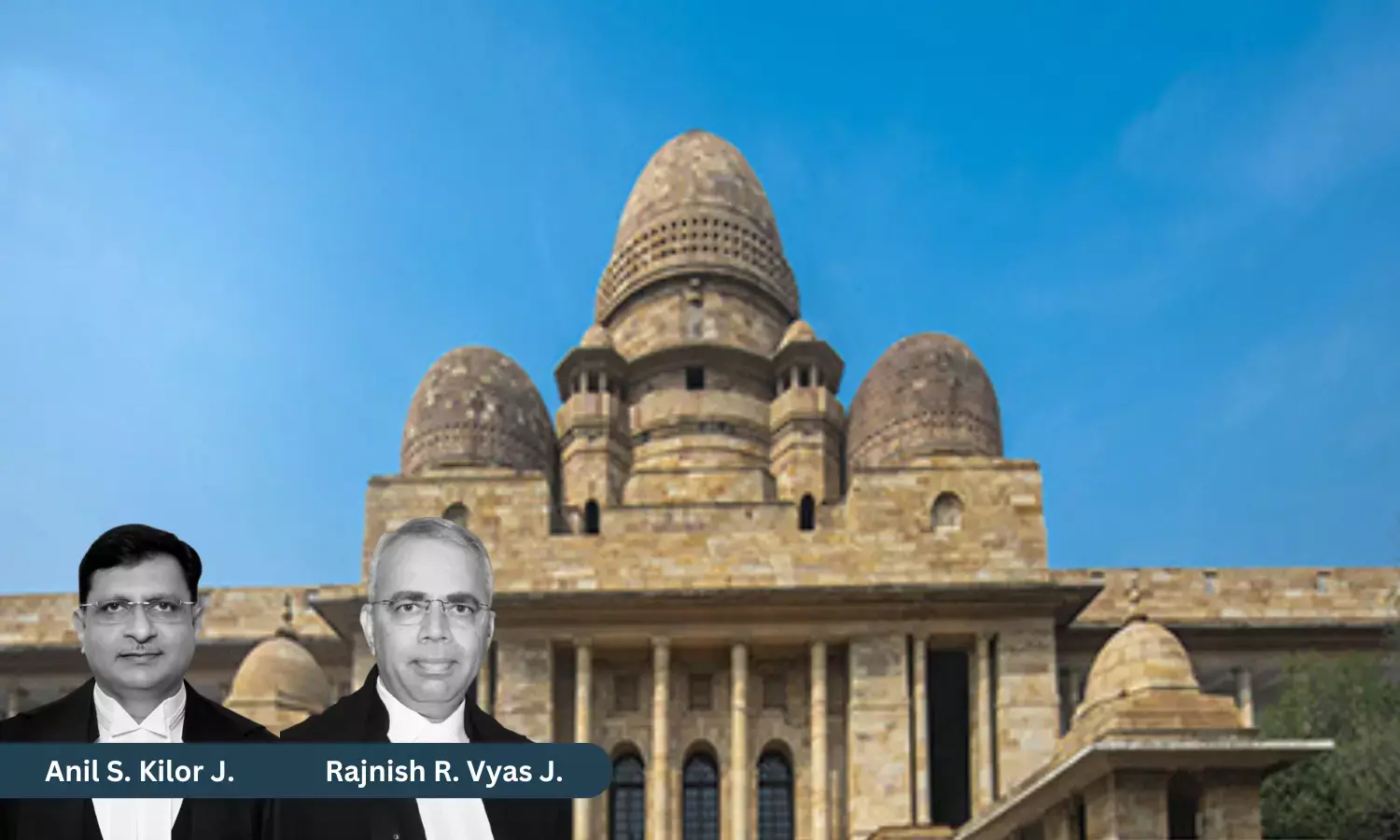Cannot Direct Bank To Rewrite Terms & Conditions Of Agreement: Bombay High Court Rejects Plea Seeking OTS Benefit
The Bombay High Court was deciding a Writ Petition filed by the director and shareholder of a company namely N. Kumar Housing and Infrastructure.

Justice Anil S. Kilor, Justice Rajnish R. Vyas, Bombay High Court, Nagpur Bench
The Bombay High Court held that it cannot direct the bank to rewrite the terms and conditions of an agreement.
The Nagpur Bench held thus in a Writ Petition filed by the director and shareholder of a company namely N. Kumar Housing and Infrastructure.
A Division Bench of Justice Anil S. Kilor and Justice Rajnish R. Vyas observed, “… it is crystal clear that issuing writ of mandamus under Article 226 of Constitution, would not in the interest of justice by directing the bank to consider the benefit of OTS to the borrower guarantor. … we cannot direct the bank to rewrite the terms and conditions of the agreement.”
Senior Advocate Devendra V. Chauhan represented the Petitioner, while Senior Advocate Akshay Naik and Advocate A.T. Purohit represented the Respondents.
Brief Facts
The Respondent Bank had extended term loan facility to Poonam Resorts Ltd./principal borrower for the advancement of business of contractor (Development and Construction of Club House cum Resort Project). A request of principal borrower was considered by the bank and a term loan of Rs. 62 crores was granted in 2011. The sanction of the term loan was at the floating interest and cost of project was initially Rs. 93.70 crores. The tenure of repayment was 110 months and N. Kumar Housing and Infrastructure/mortgager had also executed deed of guarantee and mortgaged documents to secure the loan, so also, letter confirming deposit of title deed. As the principal borrower defaulted in repayment of loan due, same resulted into classification of credit facility as non performing asset in 2017.
Consequently, recourse to Section 13(2) of the Securitisation and Reconstruction of Financial Assets and Enforcement of Security Interest Act, 2002 (SARFAESI Act) was taken by bank, since notice was not complied. Further measures under Section 13(4) of the SARFAESI Act were taken recourse to. The bank filed an Application before the Debts Recovery Tribunal (DRT) for recovery of dues from principal borrower and guarantors. The said action of the bank was taken exception to by the borrower/mortgagor by preferring an Appeal under Section 17 of the SARFAESI Act. A Company Petition was also filed by the bank under Section 7 of the Insolvency and Bankruptcy Code, 2016 (IBC) before the National Company Law Tribunal (NCLT). It was in this background, the case was before the High Court.
Reasoning
The High Court in view of the above facts, noted, “Though various prayers are made, controversy involved in the present petition settles down to the issue as to whether borrower/guarantor can ask mandate from the court to compel the creditors/bank to disclose benchmark and settle the matter ignoring OTS proposal submitted? The question is also whether Court can give direction to disclose benchmark, which according to the petitioner has not been disclosed and changed from time to time by way of vague replies.”
The Court said that if the bank/financial institution is of opinion that loanee has the capacity to make the payment or bank is able to recover the entire loan amount, even by auctioning the mortgaged property, the bank would be justified in refusing to grant benefit under the One Time Settlement (OTS) scheme, and ultimately, such decision should be left to the commercial wisdom of the bank whose amount is involved and it is always to be presumed that bank shall take a prudent decision whether to grant the benefit under the OTS scheme.
“… having regard to the public interest involved, we do not intend to interfere So far as other prayers made in petition are concerned, suffice it to say that any observations made here may affect the proceedings pending before the Tribunals. Thus, we are not passing any specific orders as core issue is already answered in this petition”, it added.
The Court concluded that exercising power under Article 226 of the Constitution of India would not be in the interest of justice.
Accordingly, the High Court dismissed the Writ Petition.
Cause Title- Archana Wani v. Indian Bank (Erstwhile Allahabad Bank) & Ors. (Neutral Citation: 2025:BHC-NAG:11219-DB)
Appearance:
Petitioner: Senior Advocate Devendra V. Chauhan, Advocates Chaitanya Dhruv, and Parth C. Malviya.
Respondents: Senior Advocate Akshay Naik, Advocates A.T. Purohit, T.Y. Sharif, S.N. Kumar, Rohan Deo, and C.S. Dhore.


